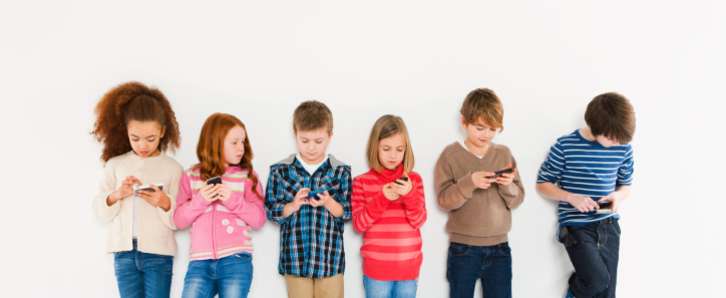MEDIA: Musical.ly exposes overtly sexual and violent content.
By Natalie Apostol and Ernie Mendez, Staff Writers
In the last decade, continually expansive social media have dominated society, from efficiently completing tasks to connecting with friends. While this technology can be used to connect with friends and share memorable moments, social media is also used as a platform for cyberbullying and can expose young kids to vulgar content. The Musical.ly app fits the latter description. This app has found its way into millions of mobile devices.
The app, created by Alex Zhu, first emerged in July of 2014. With around 10 million downloads on the Google Play and iTunes mobile stores, the app allows its users to record 15 second clips of themselves as they sing popular songs and dance, which can all be found through a trending hashtag page. Though the app requires its users to be at least 12 years of age, there is no enforcement of the rule. The rating seen before downloading suggests mild sexual content, cartoon and violence fantasy and drug uses or references, yet many children continue using the app.
After downloading the app and scrolling through a social feed, several videos instantly pop up of young children lip-syncing/dancing to songs with inappropriate lyrics. For instance, in a YouTube video with a compilation of Musical.ly videos named ‘Best Dance Musical.ly Videos Compilation of October’ uploaded by BestMusical.ly, a young girl is seen dancing in a gray sports bra and leggings to a musical remix that includes vulgar lyrics from pop songs like “Jimmy Choo” by rapper, Fetty Wap.
Adults express their concerns with the app, including an article on cyberbullying.org titled ‘What you need to know about Musical.ly’ by Sameer Hinduja. The author includes a photo of a comment section directly from the app filled with several children leaving comments such as their own home addresses and phone numbers which would otherwise be recognized as inappropriate by adults. Hinduja claims, “very young kids – when given the power to contribute to and interact on a thriving platform dominated by other young kids – are making mistakes that cause adults to cringe. Just download the app, scroll to find a Musical.ly by someone who is way too young, and look at the comments. They are kids. They are not thinking this through.”
We now live in an age where it is the societal norm for children 12 years of age and under to be seen with smartphones, let alone the Musical.ly app. Although some may argue that Musical.ly can be used responsibly if the account is set to a private setting, this does not stop a young child from posting inappropriate content themselves. This also does not keep children and young teens from seeing anything inappropriate. A curious child or young teen does not have to go far to see inappropriate adult material.
“Musical.ly should actually enforce the age restriction; a lot of the kids who use it seem too young to even have phones in the first place and are seeing things they shouldn’t. They (younger children) could easily see really sexual videos and other kids might try to copy that,” Poly student Zanith Gabriel (11) said. As a suggestion to resolve to issue, Gabriel suggested “stricter guidelines or something that actually checks to see that they’re at least 13 years old because it’s too easy for kids to download the app and be exposed to anything inappropriate.”
The controversy of Musical.ly raises questions and concerns: how young should someone be before they indulge themselves in social media? Also, who should regulate the appropriate age for someone to be allowed to use any social media app? Should it be the parents or the app developers? Perhaps educating the youth on proper use of social media is the best solution.
Although there is no perfect way to enforce restrictions, young children and teens need to be educated of the potentially harmful effects of social media, specifically the Musical.ly app. A common misconception about social media is that when a photo posted online is deleted, it vanishes into thin air never to be seen again. On the contrary, social media apps related to Musical.ly, Snapchat and Wickr prove that photos do not necessarily disappear forever. Rheana Murray’s article for ABC News, “What Really Happens to Your Deleted Snapchat Photos” reveals the truth as she interviews Nico Sell, the founder of a private messaging app called Wickr. He states, “If you don’t understand the underlying technology of the Internet and aren’t thinking about what’s going on behind the scenes, it looks like it disappeared […] But most of the time, your “deleted” Instagram snaps or Facebook posts — or possibly Snapchats — are still lurking on a server somewhere.”
Likewise with Muscial.ly, an adolescent has the ability to copy what they see on their feed and post a similar, borderline racy or seemingly violent 15-second Musical.ly video that cannot completely be disposed once posted. These suggestive videos could shape a growing child’s mind into thinking that provocative content is and should be the norm. Though it’s inevitable that a child will make mistakes, they should avoid ones that will leave an impact on their lives long after they post a Musical.ly. The bottom line: don’t let the app negatively influence children.

